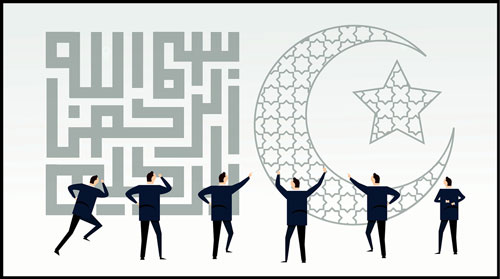An important aspect in the process of reclaiming the philosophical foundations of Islamic economics, finance and banking in contemporary times are its features of inclusivity and universal appeal
Amid the inflationary and disruptive socioeconomic circumstances caused by the contemporary general economic and financialization practices, alternate philosophical and, particularly Islamic, economic and financial thoughts have proved to be a worthwhile solution with yet unleashed potential.
As much as many would point out the root causes of contemporary socioeconomic circumstances to be an accumulative result of evolutionary attempts and failures of economic and financial applications in the course of the last few centuries, particularly the 20th, we can equally trace back the alternative philosophical and particular economic and financial thought to early centuries of Islam.
While the philosophical foundations of the recurrent economic and financial practices are flawed, Islamic economics, finance and banking perpetuated a replication of such trend to levels that critics, among which even proponents, began to see no real alternative in it.
The global growth trend of Islamic economics, finance and banking reveals a decrease from 28.64% in 2008 to just 12.71% in 2020 according to the 2021 Cambridge Global Islamic Finance Report. Meanwhile, it corresponds to the growth of assets under management from $639 billion to $2.94 trillion.
At first, we may get the impression that things are proper and evolving according to the plan, but realities on the ground are not so bright and the coronavirus exposed all the systematic inadequacies of the industry and urgency to guarantee basic needs to humanity.
Nevertheless, the industry is attempting to reclaim its initial vision and mission amidst multidimensional challenges and root its practice and services in sound philosophical foundations as espoused in teachings of the early centuries of Islam or as rooted in the sources of knowledge in Islam.
The aspirations for reclaiming the genuine foundations of the industry are greatly complemented by the global determination to attain sustainable development goals (SDGs) or particular environmental, sustainable and governance (ESG), Shariah (or Islamic law) compliant and responsible investing. That alone, however, will not inculcate the proper vision or weltanschauung in peoples’ minds.
It reflects a rather quantitative technical fulfillment of refurbished criteria by global regulatory bodies instead of a qualitative fulfillment of a higher vision of enhanced mental and spiritual welfare emanating from within the individuals. This would ensure a higher level of Shariah compliance within the Islamic economics, finance and banking industry as a whole compared to the current lower-level Shariah compliance. The lower level compliance is known industry-wide from the multiple challenges facing it, ranging from fatwa shopping, financial engineering in contracts like Sukuk (the Arabic name for financial certificates), structured products, etc.
These have raised questions of genuine Shariah compliance since the 1970s and constantly urged authorities to revisit and refurbish recurrent practices. Back then, the industry was in inception with many conventional institutions providing Islamic banking and finance windows through which services of Islamic economics, finance and banking met increasing Muslim and non-Muslim demand for an alternative approach to economics, banking and finance.
In line with modern times
Today, however, we live in an exponentially technological era where centurieslong paradigms get disrupted, including Islamic economics, finance and banking. Thus, it is prime time to integrate legacy’s best practices with those of modern times. It represents an opportunity to embrace genuine change and recalibrate established practices and services. Although the industry of Islamic economics, finance and banking was preceded by the reform and renewal movement of Islamisation of Knowledge (IOK), it demands the paradigm shift toward the Integration of Knowledge (IoK), where a synthesis of best and innovative and creative practices has the genuine potential to fulfill SDGs, ESG or higher Shariah-compliant objectives.
Embracing this narrative means that the IoK not only appraises the idea of reclaiming the genuine foundations to develop the Islamic economics, finance and banking, but it provides the framework based upon which we can systematically attain it. —Daily Sabah










